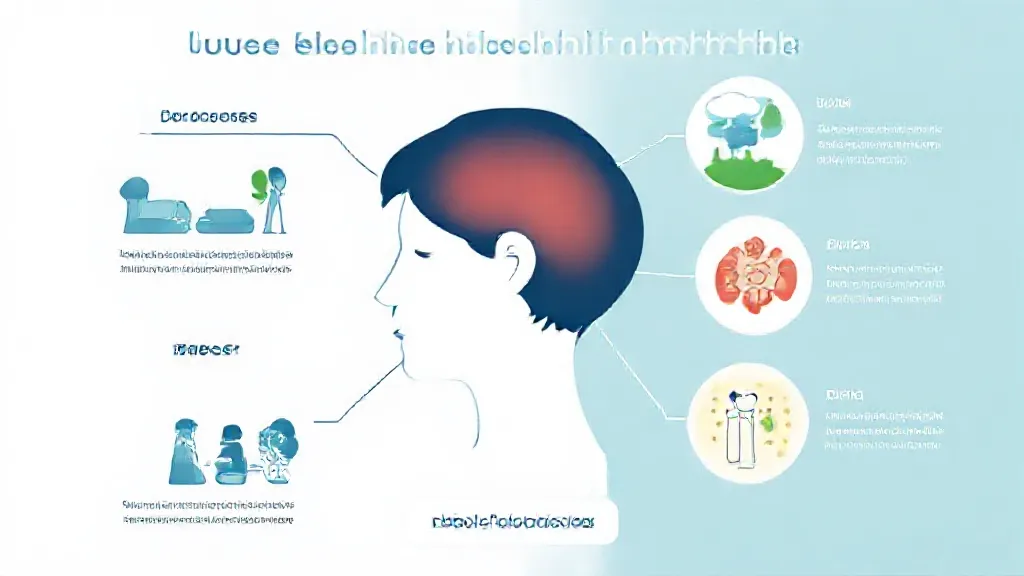Headaches are a common ailment that can affect anyone, including those who consider themselves healthy. While many people associate headaches with illness or stress, frequent headaches can occur for various reasons, even in individuals without underlying health issues. Understanding the causes of these headaches is essential for effective management and prevention.
Common Triggers of Frequent Headaches
One of the most common triggers for frequent headaches is lifestyle factors. Dehydration, lack of sleep, and irregular eating habits can significantly contribute to headache frequency. For instance, not drinking enough water can lead to dehydration headaches, while inconsistent meal times can cause blood sugar fluctuations, resulting in tension-type headaches.
Furthermore, excessive caffeine consumption or withdrawal can also provoke headaches in otherwise healthy individuals.
The Role of Stress and Mental Health
Stress is another significant factor that can lead to frequent headaches. Even individuals who are generally healthy may experience stress from work, relationships, or life changes.
Tension headaches are often linked to muscle tightness in the neck and shoulders, which can be exacerbated by stress. It’s important to recognize that mental health plays a crucial role in physical well-being, and managing stress through relaxation techniques, exercise, or therapy can help alleviate headache occurrences.
Environmental Factors and Headaches
Environmental factors can also be a contributing cause of frequent headaches.
Changes in weather, exposure to strong odors, or even bright lights can trigger headaches in some individuals. For example, barometric pressure changes associated with weather fronts can lead to migraines in susceptible individuals. Additionally, allergens and pollutants in the environment can provoke headaches, particularly in those with sensitivities.
Hormonal Influences on Headaches
Hormonal fluctuations are another common cause of headaches, particularly in women. Conditions such as menstruation, pregnancy, or menopause can lead to hormonal changes that trigger headaches or migraines. For instance, many women experience migraines in conjunction with their menstrual cycle due to fluctuations in estrogen levels.
Understanding one’s hormonal patterns can help in identifying and managing headache triggers effectively.
Medical Conditions that Mimic Headaches
While frequent headaches in healthy individuals are often benign, it’s crucial to be aware of medical conditions that can present with headache symptoms. Conditions such as sinus infections, high blood pressure, or even neurological disorders can mimic headache symptoms.
Therefore, if headaches persist or worsen, it is advisable to consult a healthcare professional for a thorough evaluation to rule out any underlying conditions.
Preventive Strategies for Managing Headaches
Prevention is key when it comes to managing frequent headaches. Maintaining a healthy lifestyle that includes regular hydration, balanced nutrition, adequate sleep, and stress management can significantly reduce headache occurrences.
Keeping a headache diary to track triggers and symptoms can also help individuals identify patterns and avoid known triggers. Additionally, practicing relaxation techniques such as yoga, meditation, or deep breathing exercises can be beneficial in managing stress-related headaches.
When to Seek Medical Advice
While many headaches are manageable at home, it is essential to know when to seek medical advice.
If headaches become more frequent, severe, or are accompanied by other concerning symptoms such as vision changes, nausea, or neurological deficits, it is crucial to consult a healthcare professional. Early intervention can lead to better outcomes and help identify any potential underlying health issues.
Conclusion: Understanding Your Headaches
In conclusion, frequent headaches in healthy individuals can arise from various factors, including lifestyle choices, stress, environmental influences, hormonal changes, and potential medical conditions.
By understanding the triggers and implementing preventive strategies, individuals can take control of their headache health. Education, awareness, and proactive management are vital in reducing the impact of headaches and improving overall quality of life.
